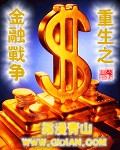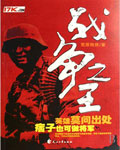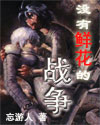战争与和平(下)-第15部分
按键盘上方向键 ← 或 → 可快速上下翻页,按键盘上的 Enter 键可回到本书目录页,按键盘上方向键 ↑ 可回到本页顶部!
————未阅读完?加入书签已便下次继续阅读!
like those threads too; only somewhat more opaque。 They—he and Pierre—were flying lightly and happily nearer and nearer to their goal。 All at once the threads that moved them seemed to grow weak and tangled; and it was all difficult。 And Uncle Nikolay stood before them in a stern and menacing attitude。
‘‘Have you done this?’’ he said; pointing to broken pens and sticks of sealing…wax。 ‘‘I did love you; but Araktcheev has bidden me; and I will kill the first that moves forward。’’
Nikolinka looked round for Pierre; but Pierre was not there。 Instead of Pierre; there was his father—Prince Andrey—and his father had no shape or form; but he was there; and seeing him; Nikolinka felt the weakness of love; he felt powerless; limp; and relaxed。 His father caressed him and pitied him; but his Uncle Nikolay was moving down upon them; coming closer and closer。 A great horror came over Nikolinka; and he waked up。
‘‘My father!’’ he thought。 (Although there were two very good portraits of Prince Andrey in the house; Nikolinka never thought of his father in human form。) ‘‘My father has been with me; and has caressed me。 He approved of me; he approved of Uncle Pierre。 Whatever he might tell me; I would do it。 Mucius Scaevola burnt his hand。 But why should not the same sort of thing happen in my life? I know they want me to study。 And I am going to study。 But some day I shall have finished; and then I will act。 One thing only I pray God for; that the same sort of thing may happen with me as with Plutarch’s men; and I will act in the same way。 I will do more。 Every one shall know of me; shall love me; and admire me。’’ And all at once Nikolinka felt his breast heaving with sobs; and he burst into tears。
‘‘Are you ill?’’ he heard Dessalle’s voice。
‘‘No;’’ answered Nikolinka; and he lay back on his pillow。 ‘‘How good and kind he is; I love him!’’ He thought of Dessalle。 ‘‘But Uncle Pierre! Oh; what a wonderful man! And my father? Father! Father! Yes; I will do something that even he would be content with …’’
Epilogue II
Chapter 1
THE SUBJECT of history is the life of peoples and of humanity。 To catch and pin down in words—that is; to describe directly the life; not only of humanity; but even of a single people; appears to be impossible。
All the ancient historians employed the same method for describing and catching what is seemingly elusive—that is; the life of a people。 They described the career of individual persons ruling peoples; and their activity was to them an expression of the activity of the whole people。
The questions; In what way individual persons made nations act in accordance with their will; and by what the will of those individuals themselves was controlled; the ancients answered; By the will of God; which in the first case made the nation subject to the will of one chosen person; and; in the second; guided the will of that chosen monarch to the ordained end。
For the ancients these questions were solved by faith in the immediate participation of the Deity in the affairs of mankind。
Modern history has theoretically rejected both those positions。 One would have thought that rejecting the convictions of the ancients of men’s subjection to the Deity; and of a defined goal to which nations are led; modern history should have studied; not the manifestations of power; but the causes that go to its formation。 But modern history has not done that。 While in theory rejecting the views of the ancients; it follows them in practice。
Instead of men endowed with divine authority and directly led by the will of the Deity; modern history has set up either heroes; endowed with extraordinary; superhuman powers; or simply men of the most varied characteristics; from monarchs to journalists; who lead the masses。 Instead of the old aim; the will of the Deity; that to the old historians seemed the end of the movements of peoples; such as the Gauls; the Greeks; and the Romans; modern history has advanced aims of its own—the welfare of the French; the German; or the English people; or its highest pitch of generalisation; the civilisation of all humanity; by which is usually meant the peoples inhabiting a small; northwestern corner of the great mother…earth。
Modern history has rejected the faiths of the ancients; without putting any new conviction in their place; and the logic of the position has forced the historians; leaving behind them the rejected; divine right of kings and fate of the ancients; to come back by a different path to the same point again: to the recognition; that is (1) that peoples are led by individual persons; and (2) that there is a certain goal towards which humanity and the peoples constituting it are moving。
In all the works of the more modern historians; from Gibbon to Buckle; in spite of their apparent differences and the apparent novelty of their views; these two old inevitable positions lie at the basis of the argument。
In the first place the historian describes the conduct of separate persons who; in his opinion; lead humanity (one regards as such only monarchs; military generals; and ministers of state; another includes besides monarchs; orators; scientific men; reformers; philosophers; and poets)。 Secondly; the goal towards which humanity is being led is known to the historian。 To one this goal is the greatness of the Roman; or the Spanish; or the French state; for another; it is freedom; equality; a certain sort of civilisation in a little corner of the world called Europe。
In 1789 there was a ferment in Paris: it grew and spread; and found expression in the movement of peoples from west to east。 Several times that movement is made to the east; and comes into collision with a counter…movement from east westwards。 In the year 1812 it reaches its furthest limit; Moscow; and then; with a remarkable symmetry; the counter…movement follows from east to west; drawing with it; like the first movement; the peoples of Central Europe。 The counter…movement reaches the starting…point of the first movement—Paris—and subsides。
During this period of twenty years an immense number of fields are not tilled; houses are burned; trade changes its direction; millions of men grow poor and grow rich; and change their habitations; and millions of Christians; professing the law of love; murder one another。
What does all this mean? What did all this proceed from? What induced these people to burn houses and to murder their fellow…creatures? What were the causes of these events? What force compelled men to act in this fashion? These are the involuntary and most legitimate questions that; in all good faith; humanity puts to itself when it stumbles on memorials and traditions of that past age of restlessness。
To answer these questions the common…sense of humanity turns to the science of history; the object of which is the self…knowledge of nations and of humanity。
Had history retained the view of the ancients; it would have said: The Deity; to reward or to punish His People; gave Napoleon power; and guided his will for the attainment of His own divine ends。 And that answer would have been complete and clear。 One might believe or disbelieve in the divine significance of Napoleon。 For one who believed in it; all the history of that period would have been comprehensible; and there would have been nothing contradictory in it。
But modern history cannot answer in that way。 Science does not accept the view of the ancients as to the direct participation of the Deity in the affairs of mankind; and therefore must give other answers。
Modern history; in answer to these questions; says: ‘‘You want to know what this movement means; what it arose from; and what force produced these events? Listen。
‘‘Louis XIV。 was a very haughty and self…willed man; he had such and such mistresses; and such and such ministers; and he governed France badly。 Louis’s successors; too; were weak men; and they; too; governed France badly。 And they had such and such favourites; and such and such mistresses。 Moreover; there were certain men writing books at this period。 At the end of the eighteenth century there were some two dozen men in Paris who began to talk all about men being equal and free。 This led people all over France to fall to hewing and hacking at each other。 These people killed the king and a great many more。 At that time there was in France a man of genius—Napoleon。 He conquered every one everywhere; that is; he killed a great many people; because he was a very great genius。 And for some reason he went to kill the Africans; and killed them so well; and was so cunning and clever; that on returning to France he bade every one obey him。 And they all did obey him。 After being made Emperor he went to kill people in Italy; Austria; and Prussia。 And there; too; he killed a great many。 In Russia there was an Emperor; Alexander; who was resolved to re…establish order in Europe; and so made war with Napoleon。 But in 1807 he suddenly made friends with him; and in 1811 he quarrelled again; and again they began killing a great many people。 And Napoleon took six hundred thousand men into Russia; and conquered Moscow; and then he suddenly ran away out of Moscow; and then the Emperor Alexander; aided by the counsels of Stein and others; united Europe for defence against the destroyer of her peace。 All Napoleon’s allies suddenly became his enemies; and the united army advanced against the fresh troops raised by Napoleon。 The allies vanquished Napoleon; entered Paris; forced Napoleon to abdicate; and sent him to the island of Elba; not depriving him; however; of the dignity of Emperor; showing him; in fact; every respect; although five years before; and one year later; he was regarded by every one as a brigand outside the pale of the law。 And Louis XVIII。; who; till then; had been a laughing…stock to the French and the allies; began to reign。 Napoleon shed tears before the Old Guard; abdicated the throne; and went into exile。 Then the subtle; political people and diplomatists (conspicuous among them Talleyrand; who succeeded in sitting down in a particular chair before any one else; and thereby extended the frontiers of France) had conversations together at Vienna; and by these conversations made nations happy or unhappy。 All at once t







